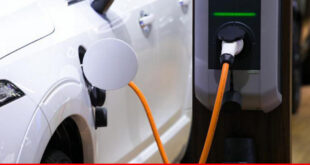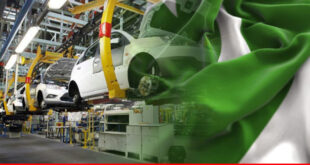Import of used cars not bring in any investment
While the auto industry has proved to be the engine of growth for any nation, in recent history, countries such as Japan, Korea, Thailand, Malaysia, Indonesia, India and Brazil have wholeheartedly supported their automobile industries and continuously making thrive.
Presently there are three areas of support. Firstly, these countries have ensured 100 per cent access of domestic market to local auto producers by disallowing import of used vehicles. Secondly, a long term policy has been put in place for auto industry, which is an essential requirement for securing the long gestation period of investment in this sector. Finally, by focusing on economic growth, the expansion in market volumes was achieved, thus enabling the OEMs and APMs to make large investments in producing high technology components in these countries.
The Pakistan Automobile Industry is one of the top five contributors to government tax revenues. It is a completely documented industry, which employees almost 300,000 skilled workers, technicians, engineers and management professionals. However, Pakistan Automobile Industry is still facing lack in consistency of policies, conducive atmosphere for industry, smooth supply of energy and above all law & order issues.
Pakistan is part of an elite group of 40 automobile producing countries in the world. During the last 30 years, 6 of the top ten global manufacturers of Passenger Cars started their operations in Pakistan and Suzuki is one of them. However, since 2008, 3 brands (Hyundai, Nissan & Chevrolet) have had to close down their operations due to various factors including a sharp reduction in automobile demand, rampant import of used cars, stagnant economy, high inflation, terrorism and unsettling law-and-order situation.
Market analysts told PAGE that the foundation of the Pakistan Automobile Industry is based on the large number of diversified Auto Parts Manufacturers (APMs). These 1600 APM Plants produce a wide variety of parts which are used by Car Assemblers in the vehicles assembled in Pakistan. Depending on type of Passenger Cars, 55 to 70 per cent of the vehicle parts are being locally manufactured in the country.
On the other hand, the import of used cars does not bring in any investment nor it creates employment. More than 39,000 used vehicles were brought into the country under various schemes in FY 2014-15, depicting around 10 per cent increase as compared to FY 2013-14. However, these schemes, which were meant to assist overseas Pakistanis, were exploited by used cars dealers for personal gains.
Phenomenal progress
Market sources claim the local auto industry was one of the few manufacturing sectors, which showed phenomenal progress during last few decades as around 3,200 manufacturing units of the allied automotive industry with an investment of Rs100 billion were established in the country. The magnitude of this industry can further be judged by its contribution to the national exchequer which is nearly Rs90 billion per annum. The sector provides employment to 2 million people and plays a pivotal role in sustaining a blossoming vendor industry. However with all its glory there are daunting challenges which are undermining the growth of this sector.
In a report of Pakistan Association of Automotive Parts Accessories Manufacturers (PAPAAM) said the schemes introduced for overseas Pakistanis for imported used vehicles were misused in an organized manner that endangered local manufacturers’ investments amounting in billions.
Sources in the PAPAAM said that countries with indigenous auto industries always discouraged auto imports by applying various tariff and non-tariff barriers to safeguard local industry. Moreover, they said that as per Pakistan’s Import Policy Order 2012-15, second-hand vehicles could not be imported for sale while new foreign cars could be imported if the trader was willing to pay a certain amount of duty and added that this was a sound policy that prevented the sale of used vehicles within Pakistan but it was not implemented. They claimed that every single vehicle imported in Pakistan had inflicted a loss of around Rs400,000 to national exchequer whereas cumulative loss was around Rs100 billion during past 10 years.
On the other hand, local car sales including light commercial vehicles (LCV) during the first 10 months (July- April) of fiscal year 2015 stood at 143,000 units, up 28% compared to 112,000 units in the same period previous year.
Company-wise figures show that sales of Pak Suzuki Motors, the largest car producer in the country, stood at 77,000 units during the first 10 months of fiscal year 2015 (up 23 per cent YoY).
Meanwhile, sales of Indus Motor Company and Honda Atlas Cars stood at 46,000 units and 18,000 units, respectively (up 55 per cent YoY and 0.2 per cent YoY).
Only in April 2015, local sales jumped by 57 per cent YoY to 19,176 units compared in 12,250 units in April 2014. Company data in the month of April 2015 shows that sales of Indus Motor remained higher, up 105% YoY and Honda Atlas Cars up 22% YoY, posted sales of 5,837 units and 2,376 units respectively in April 2015.
Pak Suzuki Motor Company (PSMC) is the largest assembler of automotive vehicles in Pakistan operating directly under Japanese management and PSMC has a commitment to contribute towards expanding its vehicle production in line with market demand. PSMC is also committed to introduce newer vehicle models using latest technologies and to continue our aggressive plans for localisation of vehicle components.
The sales of Pak Suzuki Motors stood at 10,956 units, up 49% YoY.
Hinopak Motors – the largest bus and truck-maker in Pakistan – has posted an after-tax profit of Rs381 million in the first quarter ended June 30, 2015 compared to Rs268 million in the same quarter of previous year. Earnings per share (EPS) jumped to Rs30.75 from Rs21.65.
Consistent policies essential
The company had announced a considerable net profit of Rs1.07 billion in the financial year ended March 2015 compared to Rs624 million in fiscal year 2014. It is continuously consolidating the position, registering profits for the last five years, but fiscal year 2015 was the most noticeable in terms of earnings.
Hinopak, in its annual report for 2015, said the outlook for automobile industry was likely to remain challenging as new entrants would strive hard to grab the market share. However, it added, positive social and macroeconomic factors would play a vital role in delivering a strong performance in the year ahead.
“Consistent government policies with a long-term vision are essential for the growth of auto industry. Despite various challenges, the management is confident that the company will maintain its market leadership,” it said.
There is a lot of potential in Pakistan as compare to other countries and the situation can improve if provided with consistency in policies, improved law and order situation, stability of Pak rupee, stable economy and above all competitive environment for auto industry. Pakistan can fetch substantial forex through export of locally manufactured cars and motorcycles. The government needs to facilitate the manufacturers in this regard in a true sense.
 PAGE Blog Business Weekly Magazine
PAGE Blog Business Weekly Magazine

